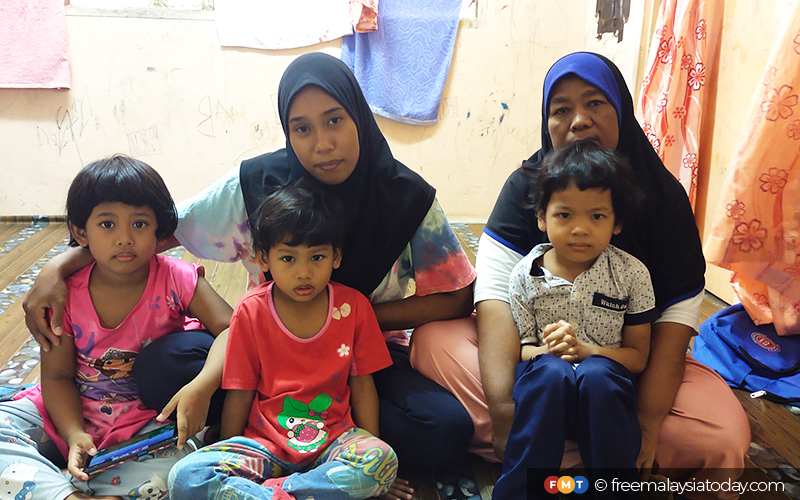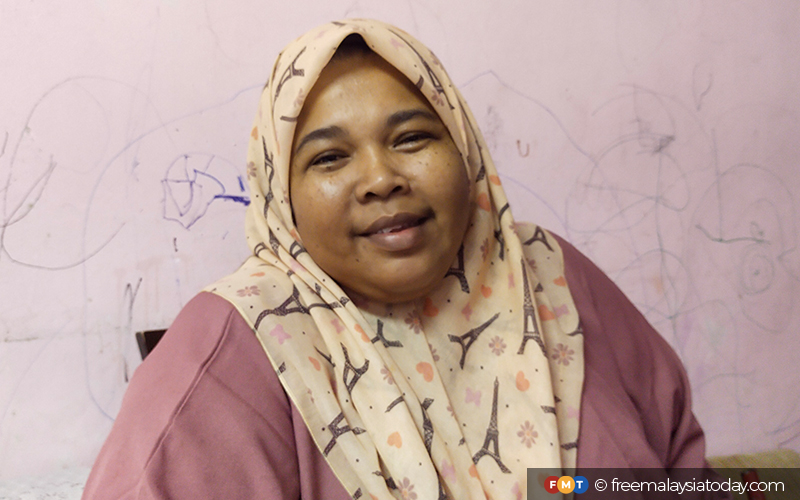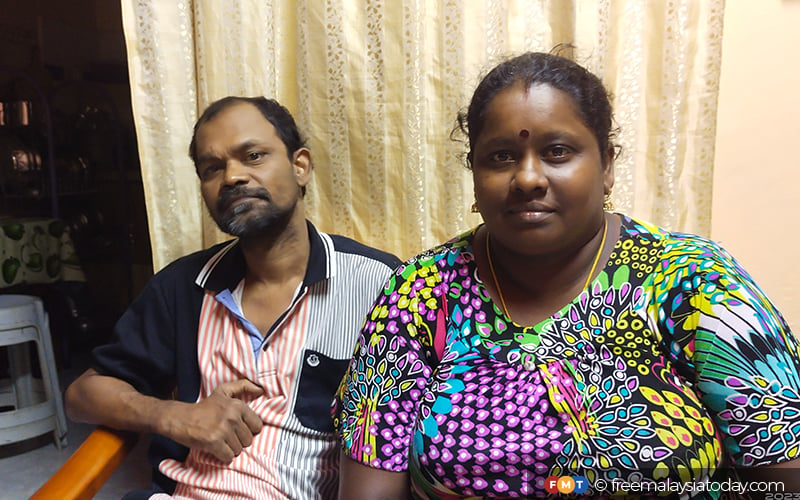
BUKIT MERTAJAM: There was a time when 43-year-old Pakialetchumy Nambiraju would buy vegetables and fish once a week. These days, she eats just rice with rasam and some vegetables.
The rise in food prices has forced Pakialetchumy to stop buying chicken, which she used to buy once a week.
However, she and her four children and her unemployed brother have yet to reach the point of going without food the entire day at their Perai Jaya flat.
Pakialetchumy is not alone. At the Ampang Jajar flats, Mariam Abdul Halim, 63, laments that the price of kembung (Indian mackerel) has gone up to RM18 per kilo (kg).
“(If I ) buy half a kilo, it would only last for up to three days,” she told FMT. “Then we will buy it again. But if fish becomes expensive then we won’t buy it.”
There are other folk who are in the B40 lower-income group who are having to make ends accordingly.

Ce’ Syakinah Ramli, 42, and Kogilahvani Ratenam, 39, are buying fewer vegetables and meat. Syakinah said she can buy only half a chicken now as a whole chicken could cost up to RM20.
“In the past, I could have vegetable dishes three times a week. Now it is just once a week” she said.
Life has always been tough for them, but the Covid-19 pandemic made things so much harder. Welfare payments have helped but they aren’t enough.
Pakialetchumy, Kogilahvani, Syakinah and Mariam hope that the supplementary food programme currently provided to primary school pupils from poor households will be extended to those in secondary schools.

“There are times when my kids go to school without pocket money, and they would ask whether I have cooked anything for them after they return from school at 2pm,” Kogilahvani said.
Mariam said the school meals would provide her some relief as she expects to spend more once her three granddaughters, aged 4, 5 and 7, eventually enter secondary school.
“If they give (school meals for) secondary school as well, our expenses will be less,” she added.
The four women also said canteen food had become expensive.
Poor nutrition
But it’s not just the children’s situation that is of concern. In Mariam’s household, most meals consist of eggs, soy sauce and rice.

It worries nutritionist Foo Leng Huat of Universiti Sains Malaysia (USM).
He said that those who consume protein-deficient meals may experience health conditions such as fatigue, poor concentration, a lower immune system, and impaired healing response.
Those with a daily diet with inadequate amounts of vegetables and fruits may suffer detrimental health effects such as micronutrient deficiency as such food contains crucial vitamins and minerals.
Foo also said that poverty increases the risks of malnutrition in all forms, ranging from under-nutrition (underweight, wasting and stunting), and micro-nutrient deficiency to over-nutrition, such as obesity.
“The effects of malnutrition do not only affect an individual in his or her current life, but it has an intergenerational cycle effect,” he told FMT. “More scientific evidence has suggested that malnourished women are at a higher risk of having low birth weight babies.”
“The low-weight baby will grow as a malnourished child and teenager and then be a malnourished pregnant woman. The cycle continues.”
To overcome the unhealthy diets of B40 households in public housing, Foo suggested that a community food garden be considered.
The garden would provide the community with direct access and control over nutritious and locally-produced food and also help to create more job opportunities and boost the local economy within the community, he said.
“All these factors can contribute to poverty reduction.” - FMT


No comments:
Post a Comment
Note: Only a member of this blog may post a comment.